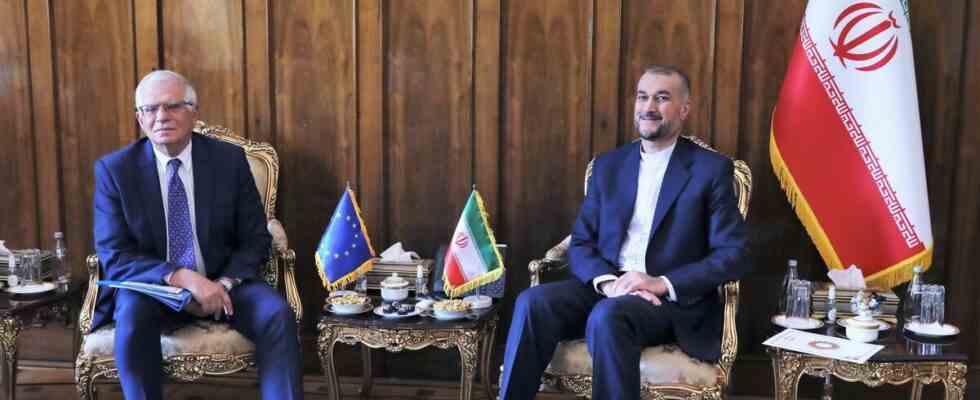Will the moribund 2015 Iran nuclear deal be saved? This is what the coordinating European Union hopes Vienna talks which brought together, last Thursday, Iran, Russia, China, France, the United Kingdom and Germany, after months of blockage. “We worked for four days and today the text is on the table of the high representatives”, announced Monday a European official on condition of anonymity. “The negotiation is over, this is the final text (…) and it will not be renegotiated”.
“Now the ball is in the capitals’ court and we will see what will happen,” added the European official. Insisting on the “quality of the text”, he said “we strongly hope that it will be accepted” and that an agreement will be reached “in a few weeks”. A few minutes later, an Iranian Foreign Affairs official indicated that the clauses of this text required “a global examination” and that Iran would transmit, after reading it, its “views and our remarks” to the EU. and “other parties”.
Another big hurdle
The pact known by its English acronym JCPOA aims to guarantee the civilian nature of the Iranian nuclear program, accused of seeking to acquire atomic weapons despite its denials. But following the unilateral withdrawal of the United States in 2018 at the instigation of Donald Trump and the reinstatement of American sanctions, Tehran has gradually freed itself from its obligations. The objective of the talks, in which the United States participates indirectly, is to put the process back on track.
There remains, however, a sizeable obstacle: Iran is asking the International Atomic Energy Agency (IAEA) to close the question of undeclared sites, where traces of enriched uranium had been found. “It has nothing to do with the JCPOA. At the same time, Iran says it is fundamental. I hope Iran and the IAEA will have a deal because it will make a lot of things easier,” the official said.
“The agency should completely resolve the issue (…) technically, and move away from irrelevant and non-constructive political issues,” Iranian Foreign Minister Hossein Amir-Abdollahian said on Sunday.

